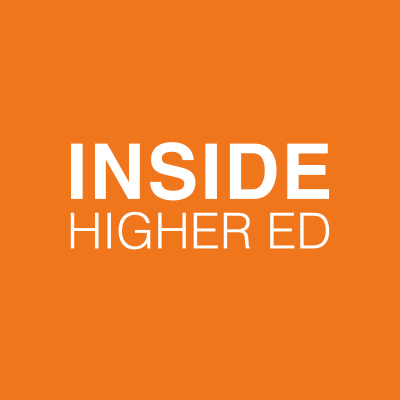
Higher Ed. Dive
May 05, 2021 Enrollment Management Trends, Student Success
Federal agencies have extended and clarified flexible policies for international students attending U.S. colleges during the 2021-2022 academic year, as well as eased some travel restrictions. This decision will allow students and schools to better plan for the upcoming academic year, but visa processing backlogs could be a potential hurdle.

Inside Higher Ed.
March 29, 2021 Admissions, Enrollment Management Trends, Student Success
The pandemic has led to a surge in applications at the most competitive colleges, both public and private. New applications include minority and low-income applications, and many top college also admitted large early decision/early-action classes. As a result, predicting yield will likely be more difficult this year, and institutions will likely rely on waiting lists more than they normally do.

Higher Ed. Dive
March 25, 2021 Student Success, Value and Affordability
Higher education interest groups and institutional leaders have lobbied the federal government to increase the size of the Pell Grant for years, with renewed urgency due to the COVID-19 pandemic. President Biden said on the campaign trail that he wants to double the Pell Grant, and with the passage of the latest relief package, his administration can now focus on other matters.

The Chronicle of Higher Education
March 11, 2021 Enrollment Management Trends, Student Success, Value and Affordability
The article features a series of graphics that highlight the financial and socio-emotional costs the COVID-19 pandemic has imposed on the higher education industry.

The Chronicle of Higher Education
March 09, 2021 Admissions, Enrollment Management Trends, Student Success, Value and Affordability
This opinion article describes the unique issues enrollment management leaders are experiencing with regard to predicting enrollment and yield for fall 2021. (Subscription required)

Higher Ed. Dive
February 19, 2021 Student Success, Value and Affordability
The government spending package passed at the end of 2020 included several provisions intended to extend federal financial support to more college students. Financial aid changes include simplifying the FAFSA, expanding eligibility for Pell grants, rebranding the EFC (expected family contribution), and bringing more predictability overall to financial aid awards.

Inside Higher Ed.
January 26, 2021 Enrollment Management Trends, Student Success, Value and Affordability
The Common Application is the most widely used college application, with more than 900 institutions participating. Newly released data shows that larger and more competitive colleges are receiving many applications, but smaller and less competitive colleges are not. Additionally, first-generation and fee waiver students are not applying at the same rates as they used to, with application numbers declining by three and two percentage points, respectively.

The Chronicle of Higher Education
January 13, 2021 Enrollment Management Trends, Student Success
Prior to the COVID-19 pandemic, colleges were already dreading a “great enrollment crash”. The pandemic then induced a 13% decline in first-time undergraduate enrollment, lying outside any projection model. Institutions of higher education must use lessons learned from 2020 and develop innovative enrollment strategies to survive the approaching demographic reversal of 2026.

Inside Higher Ed.
December 16, 2020 Student Success
A poll released by Gallup and the Lumina Foundation, a nonprofit advocate organization for equity in postsecondary education, found that about three-quarters of students rated the quality of their education to be “excellent” or “very good” despite disruptions caused by the COVID-19 pandemic.

The Chronicle of Higher Education
December 10, 2020 Student Success, Value and Affordability
This year, 21.7% fewer high school graduates enrolled directly into college compared to 2019 as reported by the National Student Clearinghouse Research Center. The reflects a huge year-to-year change, and when comparing students from different socioeconomic backgrounds, it becomes clear that the pandemic has hit low-income students, especially those from urban high schools, the hardest.